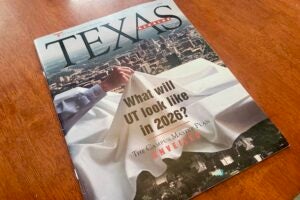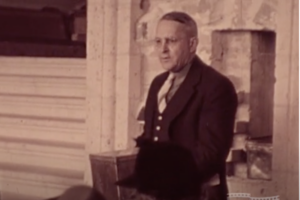Millennials live in a world of contradictions.
They are the most educated generation in U.S. history, and yet they earn less than previous generations of young workers. They live in the richest economy that the world has ever seen, and yet stable employment remains elusive.
In Texas, key metro areas across the state — Houston, Dallas/Fort Worth, San Antonio and Austin — are growing at a record pace, and a big reason for that is millennials, those born between 1980 and early 2000s. In fact, the U.S. Census Bureau recently announced that millennials now make up a greater share of the workforce than any other population segment.
Millennials are coming of age at a time when many of our notions about work, identity, opportunity and mobility are undergoing profound change.
Unfortunately our schools are not adapting.
Since the middle of the 20th century, “making it” has meant going to college, earning a degree and eventually settling into a job that lasted for the duration of a lifetime. But the world is different.
College is no longer a guaranteed path to stable employment, and most young workers will change jobs about every four years. That means that they must be open to and capable of learning new things. How can schools become more relevant in a world like this?
Schools, it turns out, could learn a lot from the inventive ways millennials are upgrading their skills and designing spaces that catalyze creativity and economic opportunity.
For example, a surging number of young people are enrolling in coding academies and design schools. These are schools that offer accelerated training in skills such as Web programming, design, or mobile apps that are in great demand in today’s economy. The schools immerse students in a social and educational environment that is bustling with energy, hands-on learning, and rich social and professional networks.
This is what is needed across Texas.
Nowhere is the design of schools that are responsive to our times more urgent than it is in Texas. During the previous U.S. census more than half of the nation’s growth in the population of children occurred in Texas. As Texas’ schools and lawmakers project forward, they would do well to invest in curricula that replicate the social, collaborative and creative ethos that kindles millennial innovation.
If a student has skills that are a complement to smart machines — computers, robots, smartphones — they will have more options for employment compared with those whose skills are being replaced by smart machines. Coding is the new language of the digital economy, and those with the ability to write code continue to find brighter employment prospects. This year about 16,000 students will graduate from coding academies, compared with 6,700 in 2014.
Design schools immerse students in learning environments that take on real-world challenges and cultivate the skills of inquiry, problem-solving, and prototyping. In one Austin design school, for instance, aspiring young professionals have taken on problems related to the delivery of health care, connecting young students as apprentices to designers, makers and entrepreneurs, and leveraging smartphones to engender civic engagement.
Schools across Texas must strive to be more responsive to the demands of our times, and that means teaching students the skills that are fit for an innovation economy.
Although we live in a technology-driven economy, innovation is a social enterprise and innovators need places to tinker, connect, test new ideas, fail and get better. Schools could learn from millennials who are pursuing their creative aspirations in spaces that are open, social and collaborative.
This includes co-worker spaces, local hipster bars and homemade studios. These places become the site for hackathons, meet-ups, boot camps, maker spaces and performances that make for a lively millennial-driven innovation ecosystem.
Some schools are making coding a required part of the curriculum, and it would be wise if more followed suit. Schools should also create incubators that simulate the activities in design studios: Students hatch a novel idea — a new mobile app or library — and build a prototype.
This is what the future of schools should look like. Texas and its lawmakers, school administrators and others need to make school relevant again.
S. Craig Watkins is a professor in the Moody College of Communication at The University of Texas at Austin and the founding director of Doing Innovation, doinginnovation.org.
A version of this op-ed appeared in the San Antonio Express News, Fort Worth Star Telegram and the Houston Chronicle.
To view more op-eds from Texas Perspectives, click here.
Like us on Facebook.



